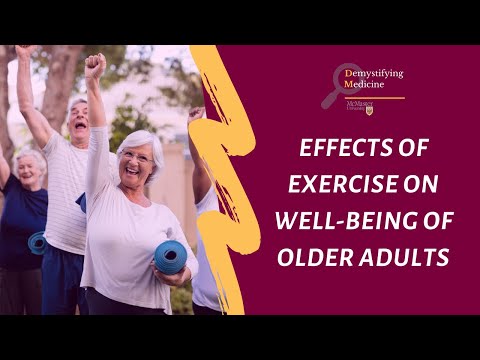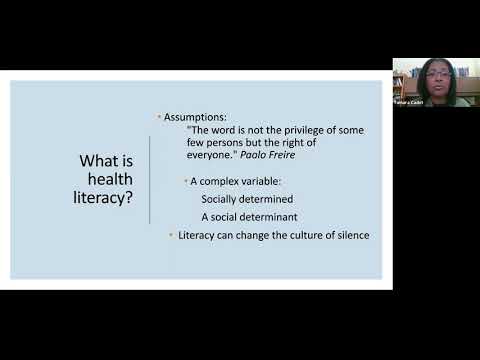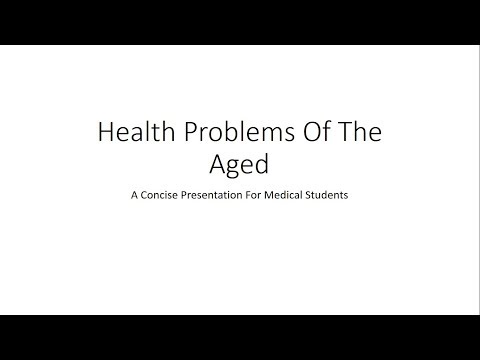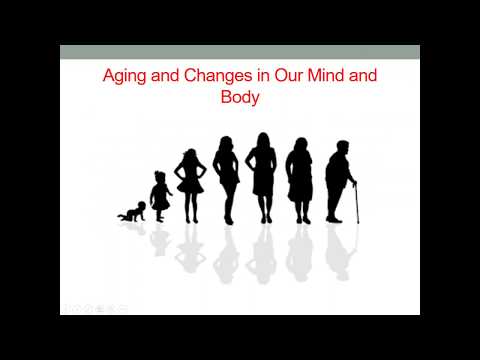The Health Benefits of Exercise for the Elderly
Contents [show]
The Health Benefits of Exercise for the Elderly:
Exercise is important for everyone, but it’s especially important for seniors. Regular exercise can help seniors stay independent, improve their mental health and prevent chronic diseases.
Checkout this video:
The many health benefits of exercise for the elderly
Exercise has long been touted for its many health benefits, and this is especially true for the elderly. Regular exercise can help to improve strength, flexibility, balance and coordination, all of which can help to reduce the risk of falls. Exercise can also help to increase bone density, reduce the risk of heart disease and stroke, improve mental health and reduce stress levels. In addition, exercise can help to increase life expectancy and improve the quality of life for the elderly.
The importance of staying active as we age
As we age, it’s important to stay active to maintain our health and independence. Regular exercise can help to improve our overall health, including our cardiovascular health, mental health and bone health Exercise can also help to reduce the risk of falls and other injuries in older adults.
There are many different types of exercise that can be beneficial for older adults. These include activities such as walking, swimming, Tai Chi and yoga. It’s important to find an activity that you enjoy and that you can stick with in the long term.
If you’re starting an exercise program for the first time, or if you’re returning to exercise after a period of inactivity, it’s important to start slowly and gradually increase your activity level over time. You may also want to consult with your doctor before starting an exercise program, especially if you have any existing medical conditions.
The benefits of exercise for cognitive health
There is growing evidence that regular exercise has a range of benefits for cognitive health in older adults. These benefits include improved brain function, enhanced memory and thinking skills, and a reduced risk of dementia.
Exercise is thought to promote cognitive health by increasing blood flow to the brain, stimulating the growth of new brain cells, and reducing inflammation. Exercise may also help to protect the brain by reducing the risk of conditions such as stroke and heart disease.
While any type of exercise is beneficial, some types may be particularly helpful for cognitive health. These include aerobic exercise, strength training, and balance and coordination exercises. Regular physical activity at any age is important for overall health, so start moving today!
The benefits of exercise for mental health
Like all forms of exercise, physical activity can have a positive impact on mental health Numerous studies have found that regular exercise can help reduce symptoms of anxiety and depression and improve overall mood. Exercise releases endorphins, which have mood-boosting effects. It also helps alleviate stress, improve sleep quality, and increase energy levels.
For older adults, staying active can help maintain independence and vitality. It can also prevent age-related mental decline and memory loss. A sedentary lifestyle is a risk factor for cognitive decline, so seniors who engage in regular exercise may be less likely to develop dementia and other age-related mental health problems.
The benefits of exercise for heart health
Studies have shown that regular exercise can help to improve heart health in the elderly. Exercise helps to increase heart rate and reduce blood pressure, which can reduce the risk of cardiovascular disease. Exercise also helps to keep arteries clear by increasing HDL (good) cholesterol and reducing LDL (bad) cholesterol. Regular exercise can also help to reduce the risk of developing Type 2 diabetes.
The benefits of exercise for bone and joint health
The benefits of exercise for bone and joint health are well-documented. Exercise helps to build strong bones and muscles, and can help to prevent falls and fractures in the elderly. Exercise also helps to improve joint function and flexibility, which can reduce the pain of arthritis.
The benefits of exercise for diabetes prevention
Exercise has countless benefits, and this is especially true for seniors. Exercise can help to prevent or manage a number of chronic conditions, including diabetes, arthritis, heart disease, and more.
There are many different types of exercise, so there is sure to be something that appeals to everyone. seniors can get the benefits of exercise by walking, swimming, doing yoga or Tai Chi, lifting weights, or participating in any other type of activity that they enjoy.
Even small amounts of exercise can have a big impact on health. Just 30 minutes of moderate exercise (such as brisk walking) five days per week can help to improve overall health and well-being.
The benefits of exercise for brain health
Exercise has long been linked with various health benefits, but recent research has shown that it can also be beneficial for brain health. A study published in the journal Frontiers in Aging Neuroscience found that elderly people who engaged in regular physical activity had better cognitive functioning than those who did not.
The study looked at a group of sedentary individuals aged 60-80, and found that those who started an exercise program showed significant improvements in memory and executive function (the ability to plan and organize). The researchers believe that exercise may help to improve brain function by increasing blood flow and stimulating the growth of new nerve cells.
Regular exercise has also been shown to reduce the risk of developing Alzheimer’s disease, and to improve cognitive function in people who already have the condition. So if you’re looking for ways to keep your mind sharp as you age, making sure you get plenty of exercise is a good place to start!
The benefits of exercise for longevity
There are many benefits of exercise for the elderly, including increased longevity. Exercise has been shown to improve cognitive function, increase lifespan and protect against age-related diseases such as Alzheimer’s and Parkinson’s.
Regular exercise can also help to reduce the risk of falls and fractures in older adults. Strong muscles and good balance help to prevent falls, and weight-bearing exercise helps to maintain bone density and reduce the risk of osteoporosis.
Exercise is also beneficial for mental health reducing stress, anxiety and depression. It can also help to improve sleep quality.
The best exercises for the elderly
The best exercises for the elderly are those that maintain or improve flexibility, muscle strength, and balance. The Centers for Disease Control and Prevention (CDC) recommend that all adults aged 65 and over should do at least 2 hours and 30 minutes of moderate-intensity aerobic activity every week, plus muscle-strengthening exercises on 2 or more days a week.
However, older adults should not start an exercise program without first talking to their doctor. It’s important to choose the right exercises, as some types of exercise can be dangerous for people with certain health conditions. For example, people with osteoporosis or who are at risk of falling should avoid high-impact activities such as running or step aerobics.
There are many different types of exercise that can be beneficial for older adults. Some examples include:
-Walking: This is a great way to get some moderate-intensity aerobic activity. Older adults should aim to walk at a pace that makes them slightly out of breath.
-Swimming: This is a good option for those with joint problems, as the water helps to support the body.
– Tai chi: This slow and gentle form of martial arts can help to improve balance and flexibility.
-Yoga: This practice can help to increase flexibility and muscle strength, as well as improve balance.







